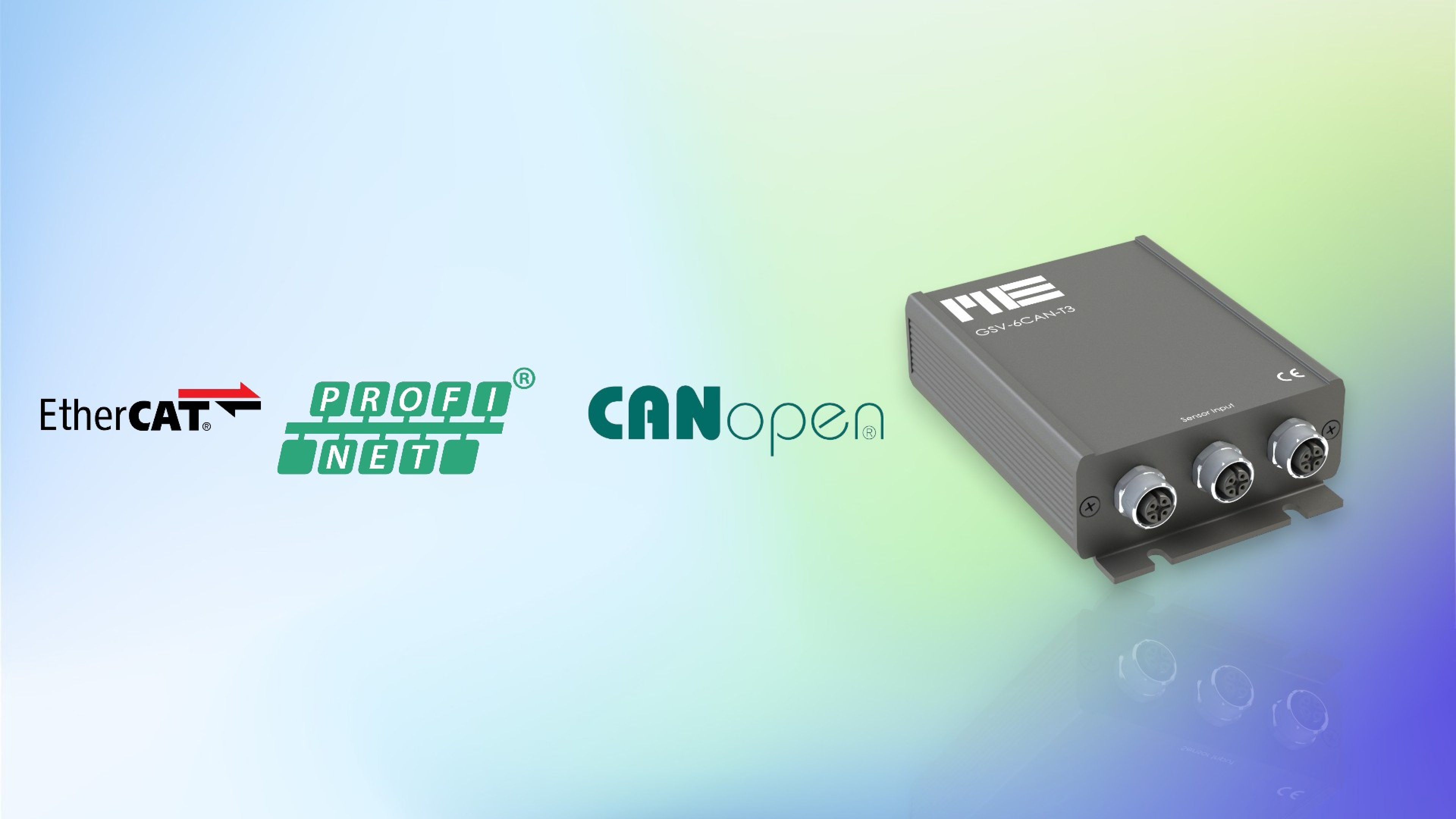Measuring amplifier with fieldbus
The measuring amplifiers with fieldbus are used in automation technology or in test benches. The fieldbus is used to connect sensors and actuators to a control computer or a programmable logic controller. The fieldbus enables data exchange over long distances efficiently and safely and usually in real time.
Fieldbuses based on Ethernet technology are referred to as "Industrial Ethernet". Ethernet-based fieldbuses include EtherCAT, Profinet IO and Ethernet
Examples of fieldbus protocols
Well-known fieldbus protocols include:
- CAN, used in the automotive sector,
- CANopen, used e.g. in elevator technology or ship electronics,
- EtherCAT used in test benches and production plants, in robotics and mechanical engineering,
- Profinet IO used in test benches and production plants, in robotics and mechanical engineering,
- Ethernet/IP used in production plants and robotics, preferably in the USA.

